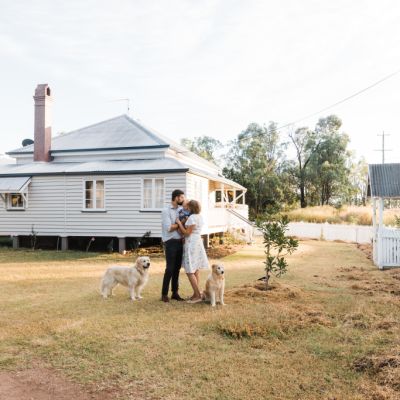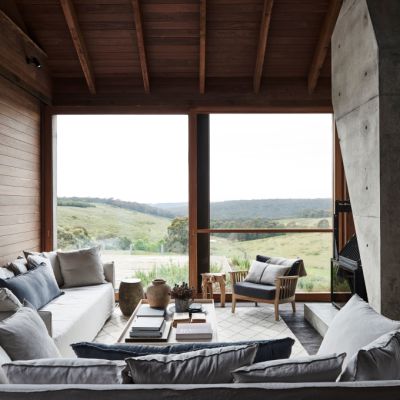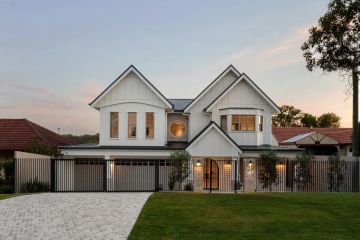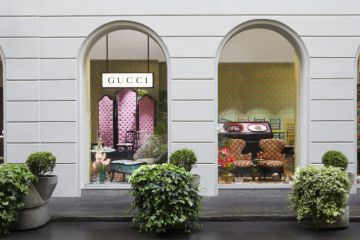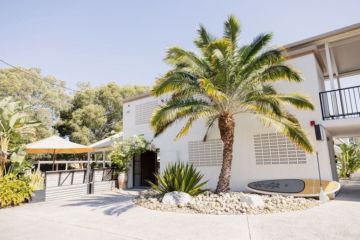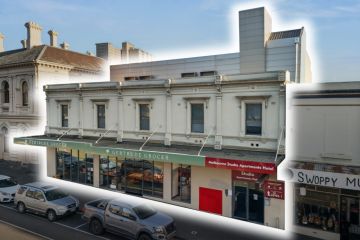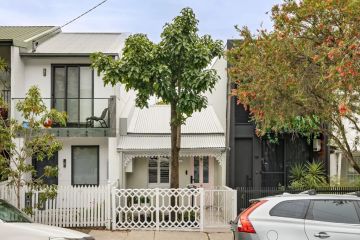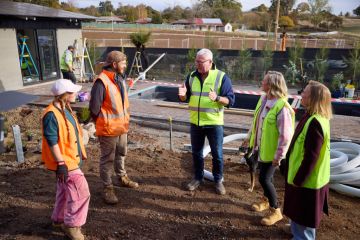Three home owners reveal what it's like to live on an isolated property
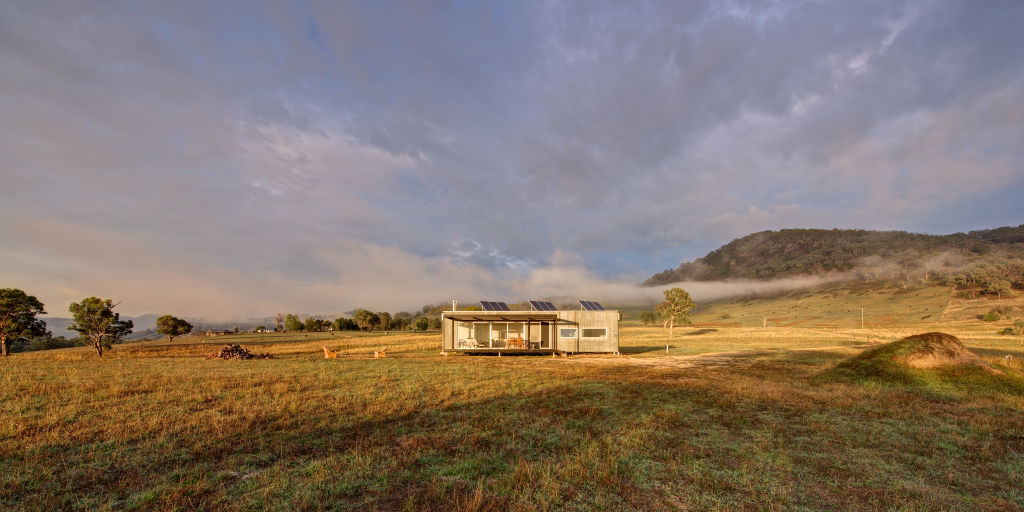
By now, who hasn’t come across a wonderfully unique, isolated home, while flicking through a magazine or scrolling online, and thought to themselves, “How wonderful it would be, to live away from it all!”
Perhaps it was a peacefully lonely off-grid cabin, or a house by the river with no road to be seen, or maybe it was a secluded shack that requires an adventure just to arrive at its front door.
As idyllic and picture-perfect as these homes seem to be, they did not just magically appear in this whimsical state. Instead, they required wild imaginations, thoughtful renovations, and a healthy dose of problem-solving prowess.
From recounting logistical details to describing what everyday life is like, these residents share their experiences regarding what it’s like to own such a home.
The River House – Coba Point, NSW
Nestled on the calming waters of the mighty Hawkesbury, The River House is the home of Belle and Simon Duff.
The property was in need of a lot of work when the couple first purchased it in 2004, as it had significant white ant damage.
Despite this, they decided to take on the challenge, gradually making changes to the house as they could afford them, building and renovating via boat and barges.
“Neither of us knew anything about the Hawkesbury River, despite having both lived in Sydney for many years, let alone what ‘water access only’ meant,” says Belle Duff.
“After renting on the river for a number of years, we knew that we weren’t ready to leave the locality or the river lifestyle, so when the house came up for sale, we jumped at it.”
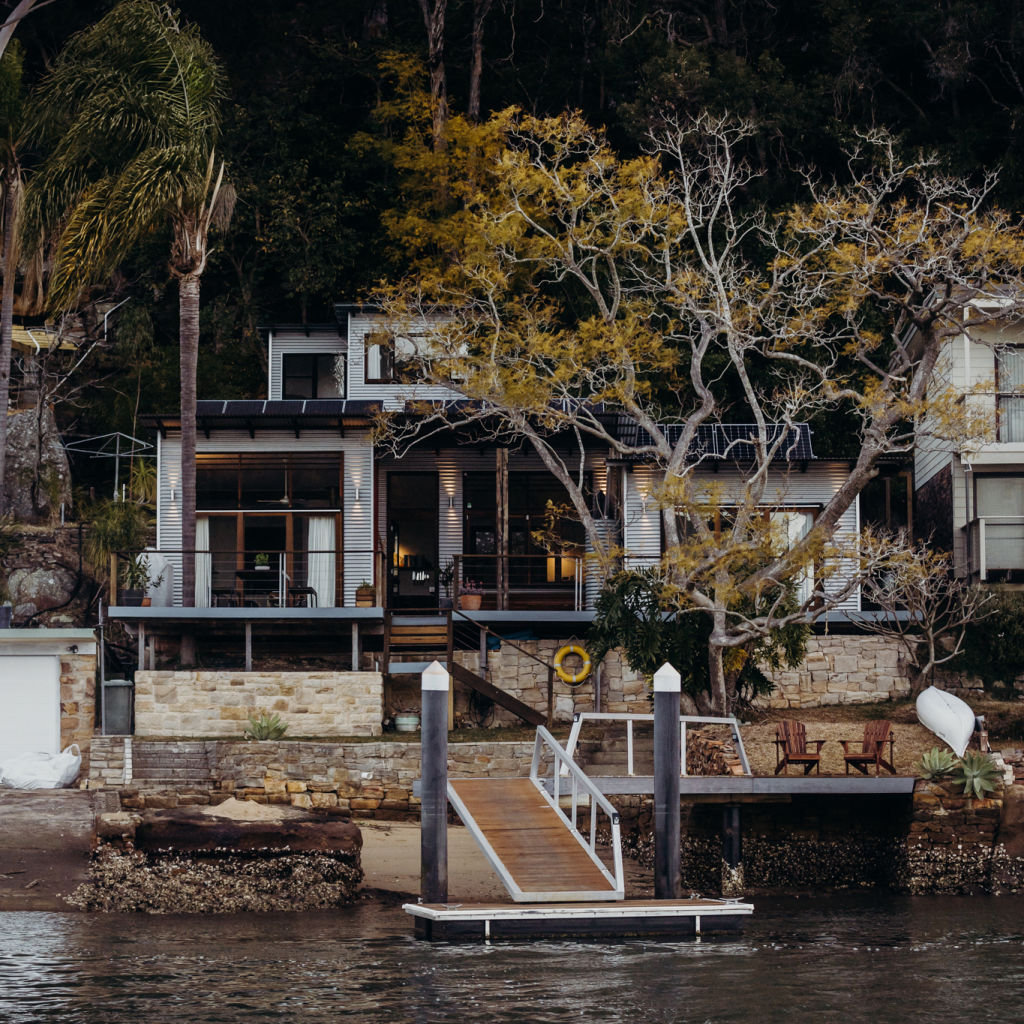
“It was a number of years before we completed the project, and it has been the perfect place to isolate away from the world ever since, despite it being only a 10-minute boat ride and then 40 minutes into the city by car.”
While the change of lifestyle certainly proved to be as idyllic as the couple had hoped, Duff admits that life on the river has had a few little nuisances.
“Going to work on a rainy day involves getting wet to some degree, no matter what you do, and foggy mornings will often require handheld satellite navigation to navigate the river,” she says.
“Patience is also necessary when it comes to internet service, given that it’s strung up between trees for 40 kilometres through the national park to the closest exchange.”
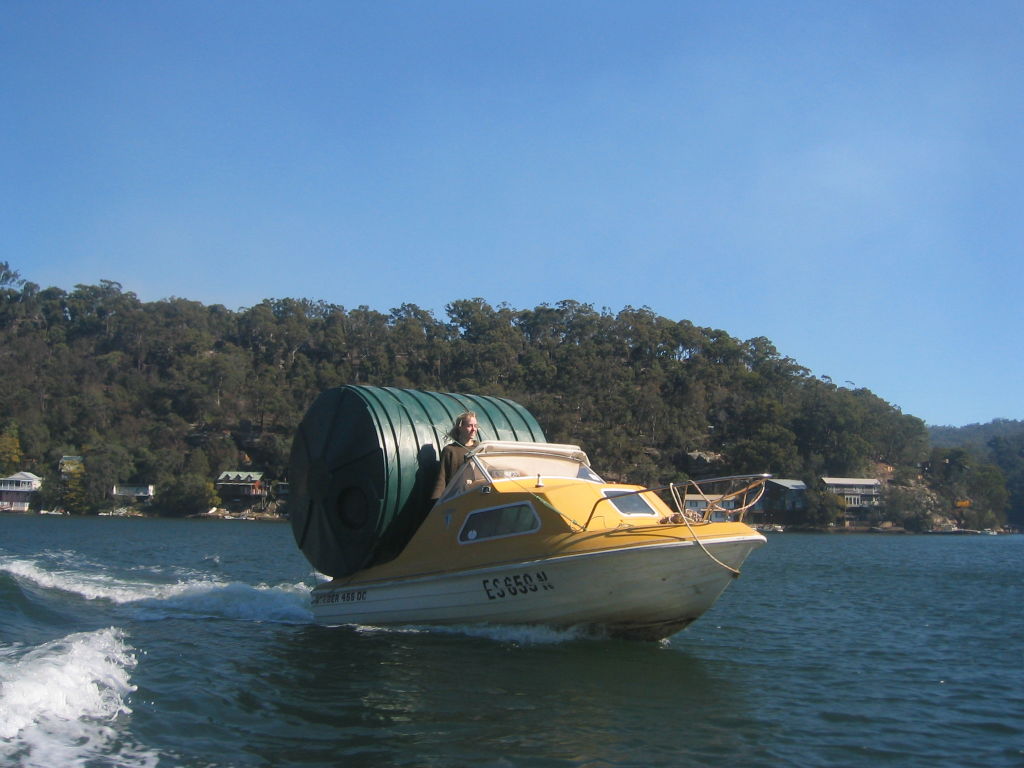
But these minor and manageable predicaments pale in comparison to the wonder of it all.
“It really is a beautiful part of the world, and getting to know the many personalities of the Hawkesbury River is truly a gift,” Duff says.
“King tides, the reflection of a full moon, the debris in the water after heavy rain, the glow of phosphor in the wake of the boat at night, jumping mullet hitting your boat, plagues of jellyfish, scraping barnacles off your boat hull – this all comes with living on a salt water river.”
The Duffs opened the The River House to Airbnb guests in late 2018 and, unsurprisingly, visiting guests have been embracing river life ever since.
Modular House – Tintaldra, Victoria
Hugging the Murray River in Tintaldra, another unusual structure sits quietly in close to 81 hectares of a picturesque property, serving as the rural retreat for its owner Ian Cesa.
“I grew up in Wangaratta and enjoyed fishing with my father and grandfather, so I always thought it would be great to be able to wander down to the river and fish without having to get into a car and drive somewhere,” says Cesa.
“The fact that this land had nearly three kilometres of river frontage acted as the main reason I purchased it back in 2000.”
Opting for a modular build, Cesa sought the help of Modscape, which were able to assist him throughout the entire process.
“Since I was based in Los Angeles at the time, I would be sent progress shots during the build, and when the delivery date drew near, I came home to prepare the site,” Cesa says.
“We chose the position that allowed the picture window to look directly at the Snowy Mountains.”
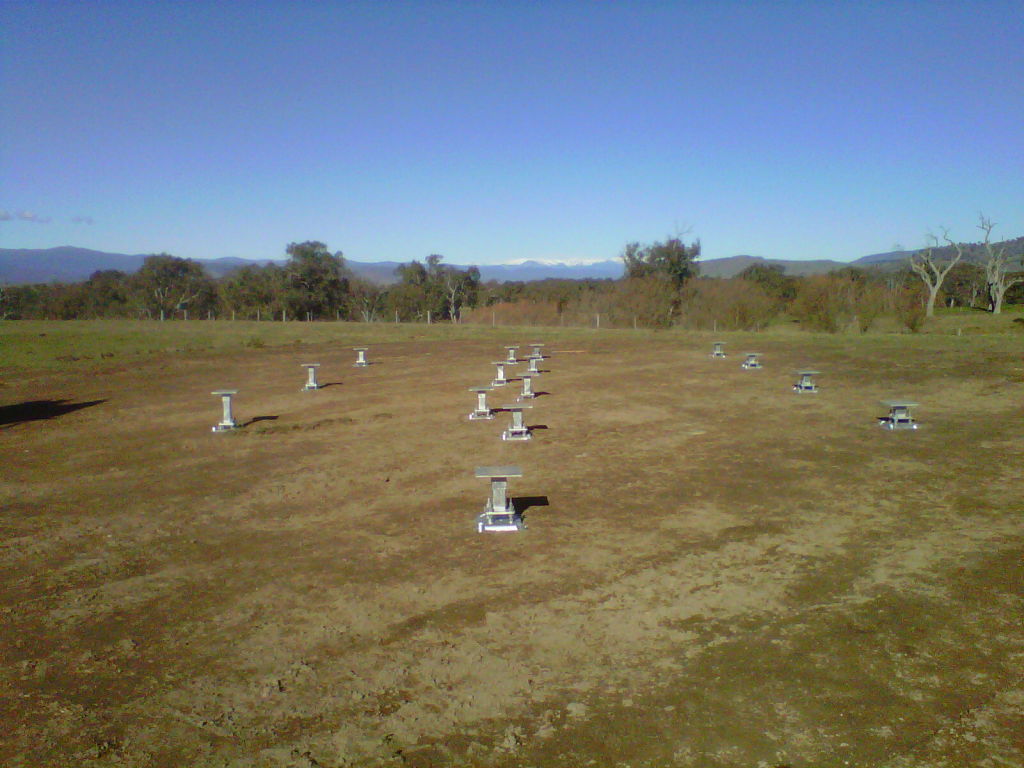
After deliberating whether to get connected or go off-the-grid, a helpful discussion with a solar provider convinced Cesa that a renewable energy option would be more reliable, which later proved to be the right decision, particularly during the bushfires Victoria faced over the past summer.
“While most others around here had lost power for an extended period, thankfully, I still had electricity from the solar,” says Cesa.
But as for life-giving water, this proved to be a more difficult task. After originally relying on a river water supply, but losing multiple pumps to floods, Cesa sought some water security by drilling a bore on the site, where luck would play a main factor.
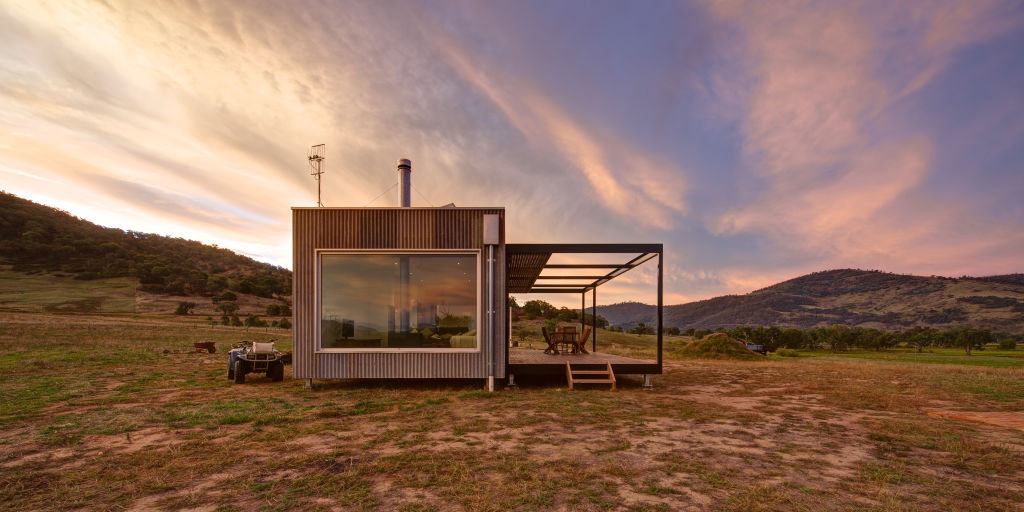
“An interesting, but puzzling fact, is that drilling companies seem to have absolutely no expertise at deciding where best to drill for water,” says Cesa.
“I ended up paying $10,000 for a dry hole, as they drilled 100 metres down and were still in solid rock.”
A few more water wells and treatment iterations later, his water problems now appear to be solved, and after deciding to leave the bathroom window completely clear, he says even taking showers comes with its own scenic view – with only the odd cows in sight, minding their own business.
“Typically, I am here every second week, usually for a couple of days at a time, and almost all holidays, however, since the COVID-19 lockdowns, I have been here full-time,” says Cesa.
“Our nearest neighbour lives about a kilometre away; he’s in his 80s and lives alone, and just after the first lockdown started, I saw him during one of his morning walks and asked him, jokingly, how he was doing with the social distancing – he laughed and said it wasn’t much of a change for him.”
Captains Rest – Strahan, Tasmania
Within the sleepy fishing village of Strahan, a four-hour drive from Hobart, there’s a secluded shack that dwells in blissful isolation – the humble holiday home of Sarah Andrews that’s aptly named Captains Rest.
“A few years ago, I was flicking through a Country Style magazine, and saw an advert of a little shack perched on the edge of a fishing village, in the middle of nowhere in Tasmania,” says Andrews. “I made a few phone calls, it was for sale, and I bought it on the spot.”
What followed was six months of full-time renovation and given the cabin’s remote setting, there were many trying obstacles that Andrews had to overcome in the process.
“Imagine renovating when the closest hardware store is an eight-hour round trip away,” says Andrews. “One time, I drove this round trip for a pack of screws – I wish that I was kidding, but I’m afraid I’m not.”
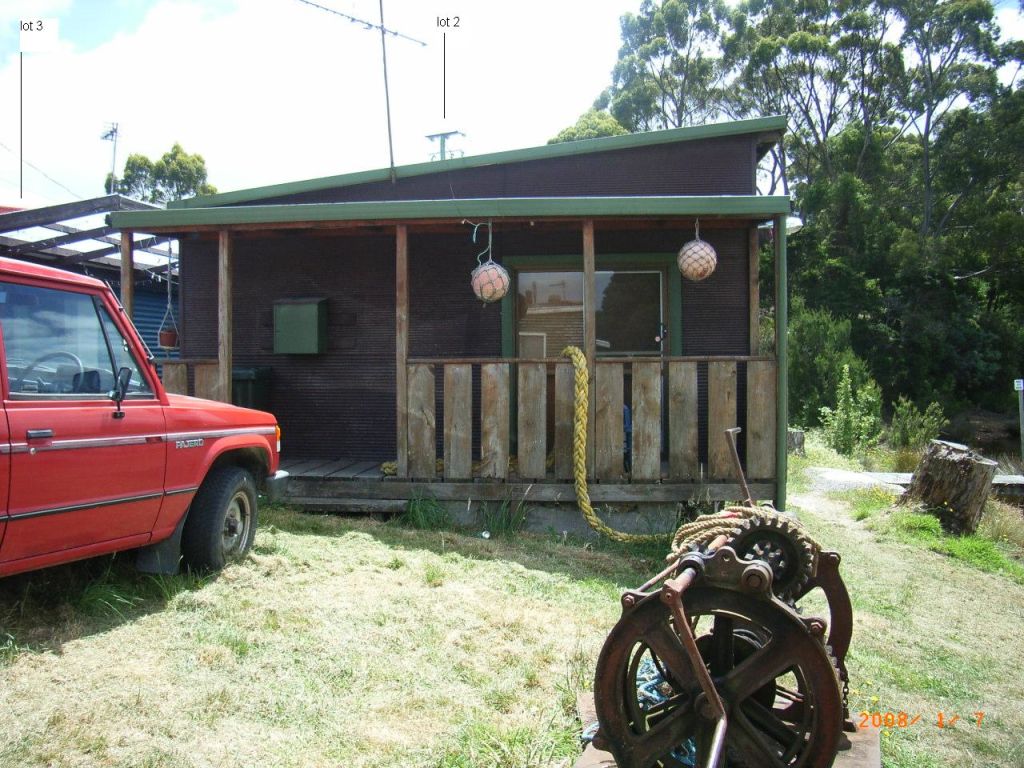
Even once the renovation was complete, other curveballs here and there would present themselves, posed by the cabin’s isolation.
“It’s annoying to have things like leaking taps. And if you need to get a new one installed, then a two-month carefully planned operation of deliveries soon follows,” says Andrews. “But perhaps this is how anything worthwhile starts, you need to earn it.”
And worthwhile it was, with her persistence combined with her natural ability to create beautiful homestays, Captains Rest has become a wildly popular destination retreat, receiving bookings year-round.
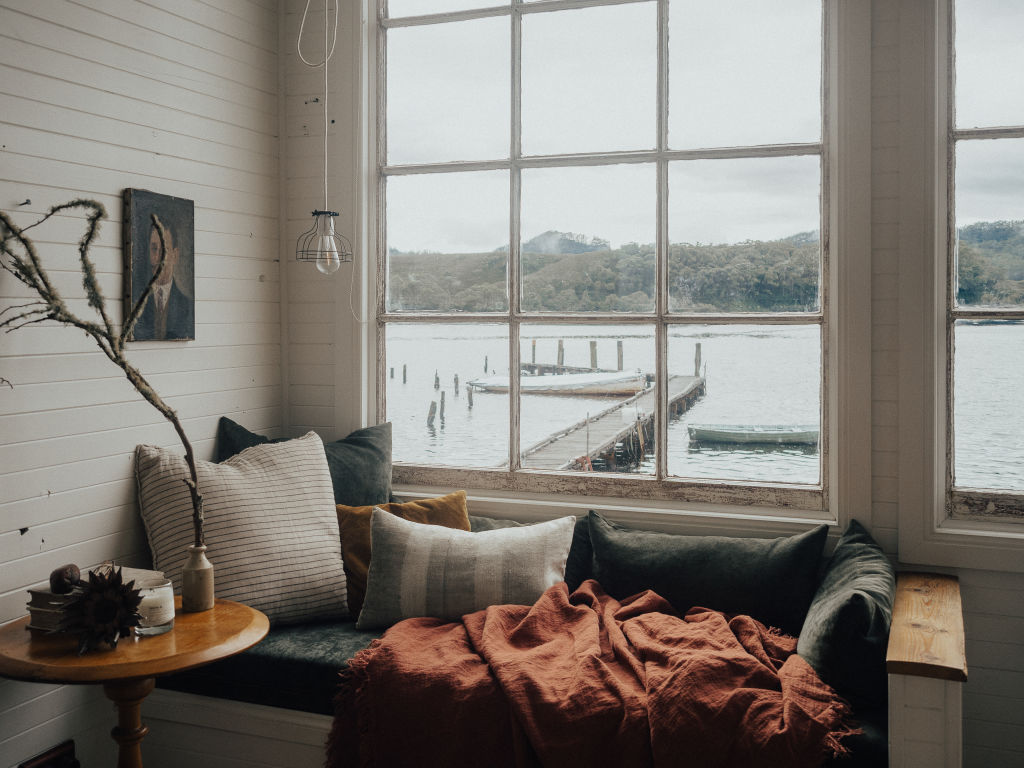
“Between paying guests, I would sometimes come to stay for just a night or two, but I’ve also been lucky enough to find myself spending months here peacefully alone,” says Andrews.
“I would usually buy everything I need in Hobart before arriving, then stock and stack, well prepared to stay put.”
Certainly, it helps that Andrews is a keen fisher, and the fact that there’s a jetty keeping the cabin company, perfect for throwing out a line.
What’s more, her local community is also a close-knit one, with people always dropping off veggies, flowers, or abalone on her front porch.
“In a small village like this, even the local post office knows you – you’re not just a name on a parcel,” says Andrews. “In fact, here parcels can be left as long as you like, as they know I’ll eventually turn up for it.”
We recommend
States
Capital Cities
Capital Cities - Rentals
Popular Areas
Allhomes
More
